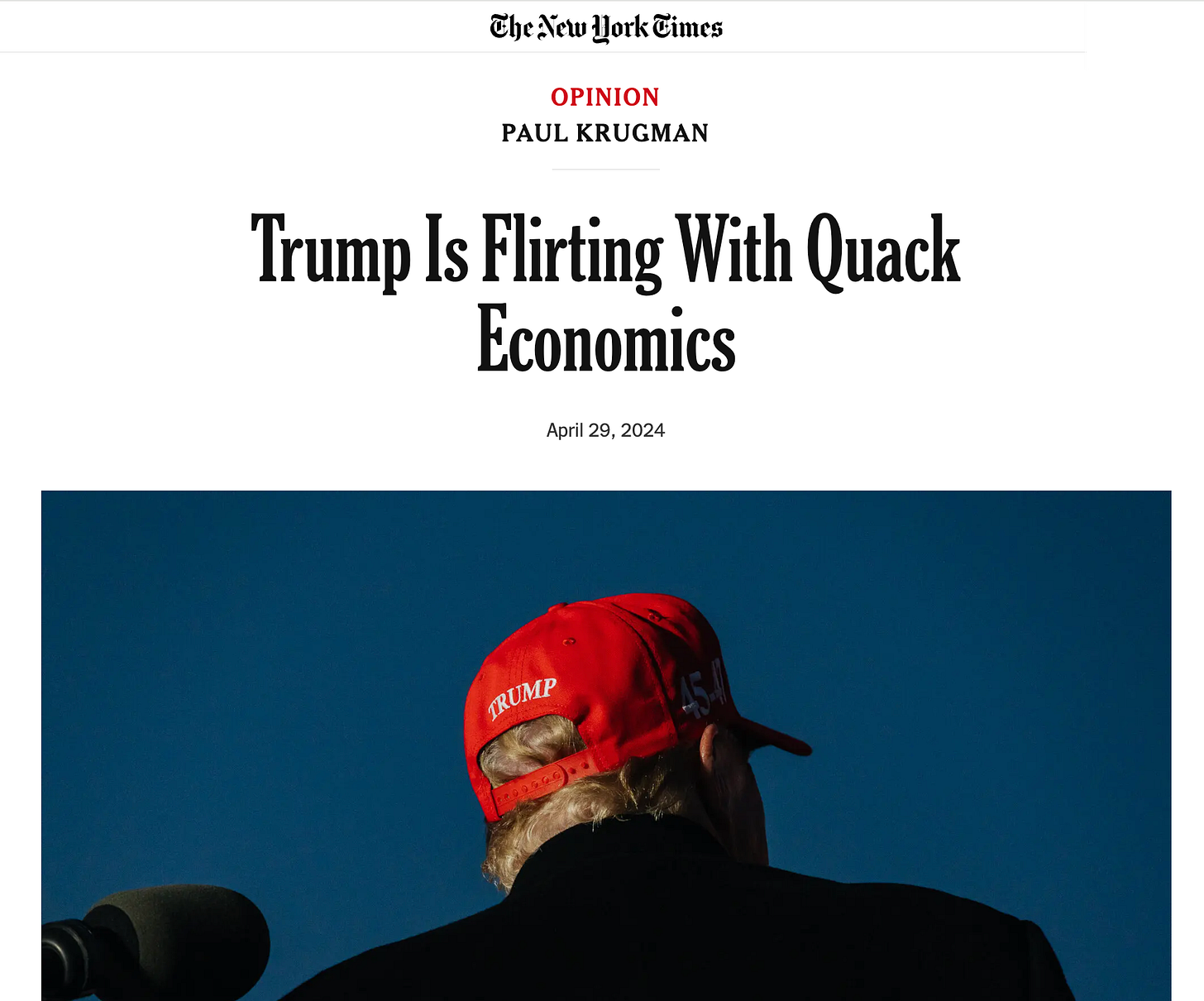Paul Krugman's Magical Thinking
The standard-bearer for the "Voters are too dumb to understand the economy" movement takes an ironic stand against "magical thinking"
Last week, in “It’s Not Me, It’s You,’” I wrote about a booming new op-ed genre, the editorial that bashes hick voters for their incorrect “Perception of the Economy.” Pundits attack voters’ “stubbornly low” assessments, producing poll numbers that leave experts “baffled” and wondering when people will catch up to “reality.”
In a bit of Racket malpractice, the article didn’t mention Paul Krugman of the New York Times, who’s written a collection of those articles and become the unofficial tribune of the “Perception of the Economy” movement. As scientists in classical times believed the sun revolved around the earth, Krugman believes all things revolve around Donald Trump, the subject of this recent piece of wizardry:
Krugman’s “quack economics” fears are prompted by a Wall Street Journal report claiming Trump advisers are “quietly drafting proposals that would attempt to erode the Federal Reserve’s independence” if Trump wins in November. As the Times “Dealbook” page surmised, “The overall goal is to give Trump what he wants: more say on interest rates,” with those unnamed sources claiming Trump aides discussed requiring Fed officials to consult with the president before raising or lowering rates.
Krugman spins a series of elaborate nightmare hypotheticals on the basis of this one piece of information, concluding:
How would Trump respond if things went wrong? Remember, he suggested we look into fighting Covid by injecting disinfectant. Why expect him to be any less inclined to magical thinking in dealing with, say, a new surge in inflation?
Paul Krugman, worried about a magical thinking response to a “surge in inflation.” Why would that be funny? Let’s review:


